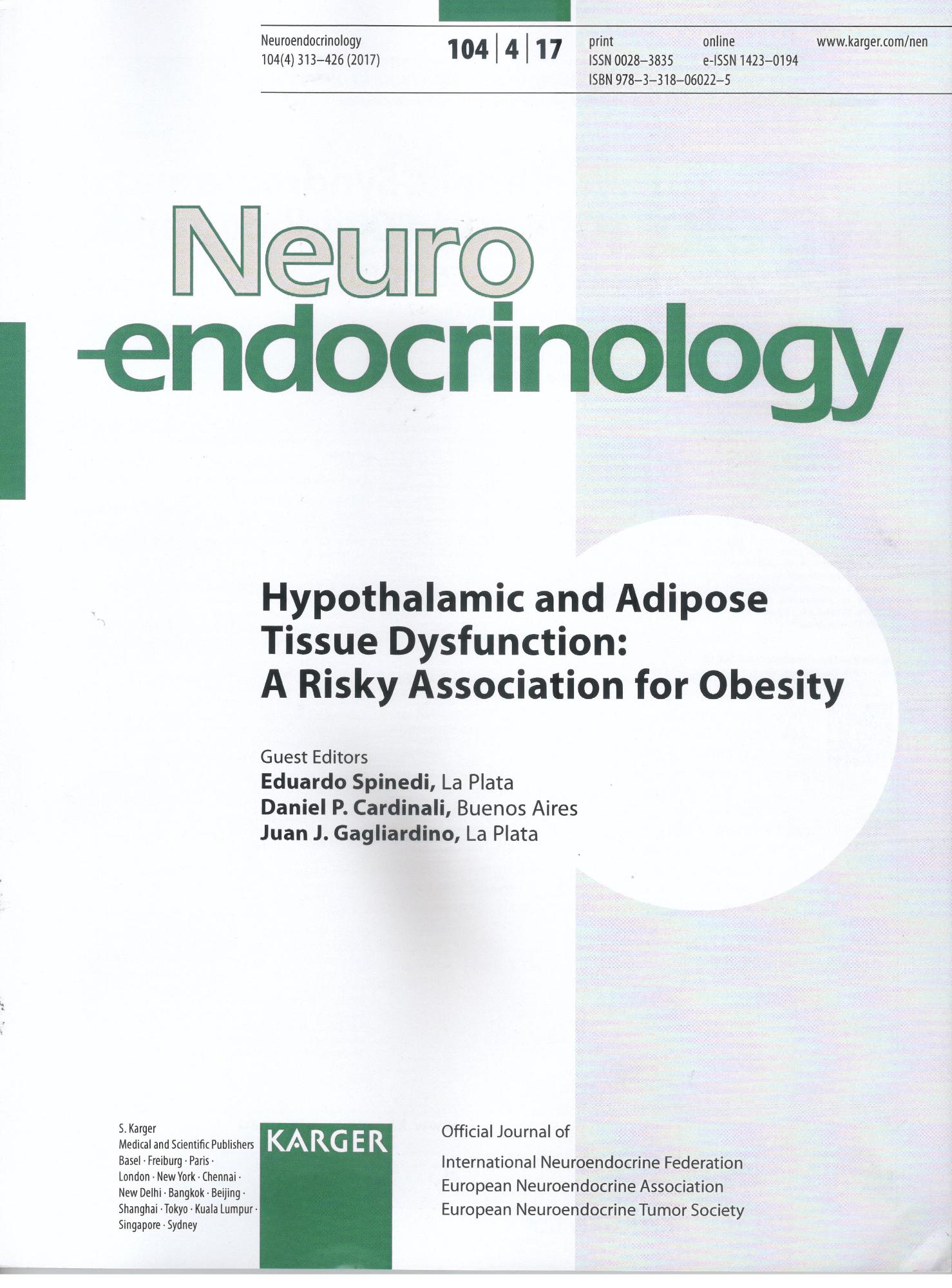Mostrar el registro sencillo del ítem
dc.contributor.author
Cardinali, Daniel Pedro

dc.contributor.author
Hardeland, Rüdiger
dc.date.available
2018-06-07T18:24:35Z
dc.date.issued
2017-04
dc.identifier.citation
Cardinali, Daniel Pedro; Hardeland, Rüdiger; Inflammaging, Metabolic Syndrome and Melatonin: A Call for Treatment Studies; Karger; Neuroendocrinology; 104; 4; 4-2017; 382-397
dc.identifier.issn
0028-3835
dc.identifier.uri
http://hdl.handle.net/11336/47714
dc.description.abstract
The metabolic syndrome (MS) is a collection of risk factors for cardiovascular disease, including obesity, hypertension, hyperinsulinemia, glucose intolerance and dyslipidemia. MS is associated with low-grade inflammation of the white adipose tissue, which can subsequently lead to insulin resistance, impaired glucose tolerance and diabetes. Adipocytes secrete proinflammatory cytokines as well as leptin and trigger a vicious circle which leads to additional weight gain largely as fat. The imbalance between inflammatory and anti-inflammatory signals is crucial to aging. Healthy aging can benefit from melatonin, a compound known to possess direct and indirect antioxidant properties, to have a significant protective effect on mitochondrial function, to enhance circadian rhythm amplitudes, to modulate the immune system and to exhibit neuroprotective actions. Melatonin levels decrease in the course of senescence and are more strongly reduced in diseases related to insulin resistance. This short review article analyzes the multiple protective actions of melatonin that are relevant to the attenuation of inflammatory responses and progression of inflammaging and how melatonin is effective to curtail MS in animal models of hyperadiposity. The clinical data supporting the possible therapeutic use of melatonin in human MS are also reviewed. Since attention has been focused on the development of potent melatonin analogs with prolonged effects (ramelteon, agomelatine, tasimelteon, piromelatine) and in clinical trials these analogs were administered in doses considerably higher than those usually employed for melatonin, clinical trials on melatonin in the range of 50-100 mg/day are needed to further assess its therapeutic value in MS.
dc.format
application/pdf
dc.language.iso
eng
dc.publisher
Karger

dc.rights
info:eu-repo/semantics/openAccess
dc.rights.uri
https://creativecommons.org/licenses/by-nc-sa/2.5/ar/
dc.subject
Melatonin
dc.subject
Metabolic Syndrome
dc.subject
Inflammation
dc.subject
Diabetes
dc.subject
Obesity
dc.subject
Insulin Signaling
dc.subject
Aging
dc.subject.classification
Inmunología

dc.subject.classification
Medicina Básica

dc.subject.classification
CIENCIAS MÉDICAS Y DE LA SALUD

dc.title
Inflammaging, Metabolic Syndrome and Melatonin: A Call for Treatment Studies
dc.type
info:eu-repo/semantics/article
dc.type
info:ar-repo/semantics/artículo
dc.type
info:eu-repo/semantics/publishedVersion
dc.date.updated
2018-06-07T14:25:58Z
dc.identifier.eissn
1423-0194
dc.journal.volume
104
dc.journal.number
4
dc.journal.pagination
382-397
dc.journal.pais
Suiza

dc.journal.ciudad
Basilea
dc.description.fil
Fil: Cardinali, Daniel Pedro. Pontificia Universidad Católica Argentina ; Argentina
dc.description.fil
Fil: Hardeland, Rüdiger. Universität Göttingen; Alemania
dc.journal.title
Neuroendocrinology

dc.relation.alternativeid
info:eu-repo/semantics/altIdentifier/doi/http://dx.doi.org/10.1159/000446543
dc.relation.alternativeid
info:eu-repo/semantics/altIdentifier/url/https://www.karger.com/Article/Abstract/446543
Archivos asociados
